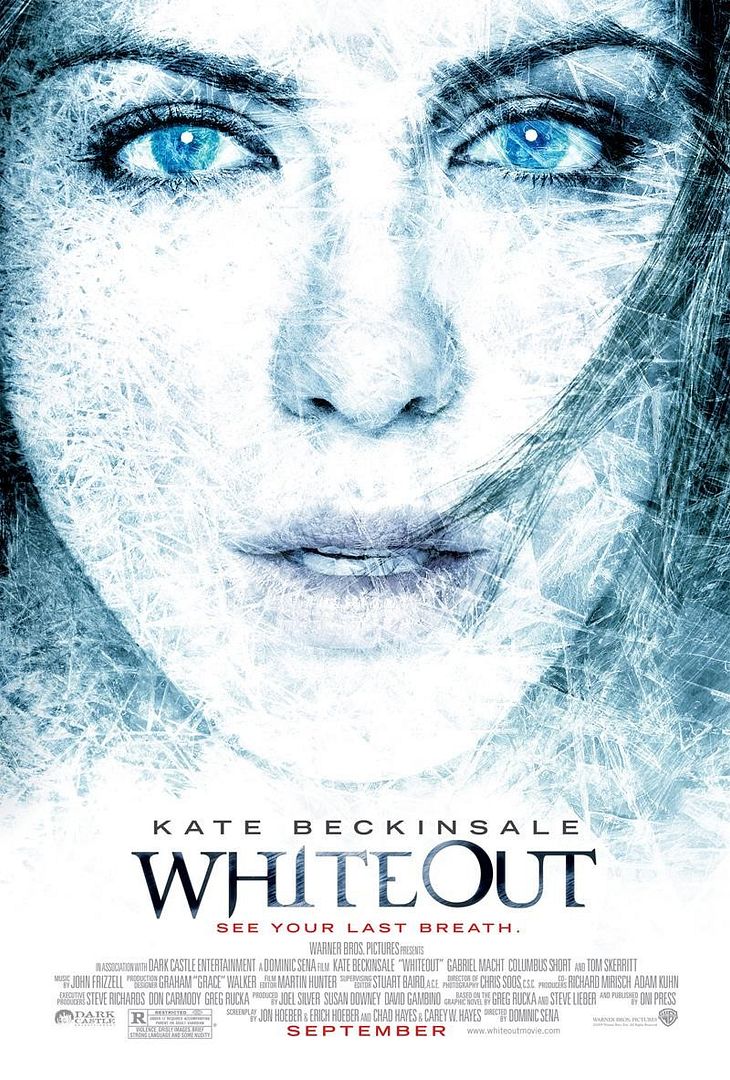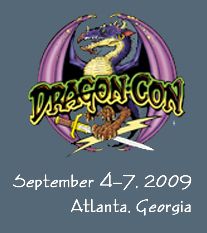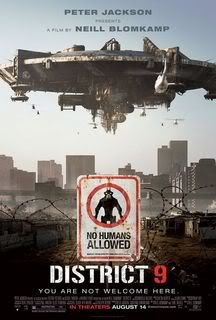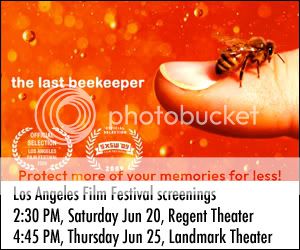Part of every great Hallow’s Eve, in addition to carving Jack ‘O Lanterns, fake blood and candy, involves a good old-fashioned horror film. To help our loyal fans prepare in advance, ScriptPhD.com enlisted the help of our good friend Bryy Miller, screenwriter and president of Lefty Films, to grab sneak peek screenings of two Halloween-themed releases, Dark Country and Trick ‘r Treat, at the inaugural Long Beach Comic Con, as well as two very rare, special comics panels. His reviews and coverage, below the cut.
Continue reading Guest Post: Comics, Legends and Some Halloween Horror
Tag Archives: Film
INTERVIEW: Greenwriter.org

Here at ScriptPhD.com, we are increasingly aware of science and technology that provides solutions to the stresses and threats facing our global environment. As part of a new series we are launching called “It’s Not Easy Being Green”, we are committed to bringing you coverage of the best “green initiatives”, especially those relating to the entertainment industry. With the help of the newest addition to the ScriptPhD.com family, talented European filmmaker Svetlana Dekic, ScriptPhD.com’s first video production is a filmed interview with environmentally-conscious company Greenwriter.org. Based in Hollywood, CA, Greenwriter.org is seeking to reinvent the way we buy and sell screenplays by establishing the first free online screenplay catalog service that directly connects writers worldwide with Hollywood production companies–all without having to print a single sheet of paper! Our interview, under the jump.
Continue reading INTERVIEW: Greenwriter.org
REVIEW: Whiteout (Adventures in Antarctica)

In a recent interview with ScriptPhD.com, Watchmen screenwriter Alex Tse described Hollywood’s recent spate of comic book and graphic novel adaptations as jumping on a bandwagon. So let’s continue the momentum and hop aboard the South Pole Express to Warner Brothers’ Kate Beckinsale-starring remake of the classic graphic novel Whiteout by Greg Rucka and Steve Lieber. ScriptPhD.com reviews this cool-as-ice thriller and provides some real-world gripping tales of scientific heroism in Antarctica under the jump.
Continue reading REVIEW: Whiteout (Adventures in Antarctica)
Dragon*Con Coverage

Greetings from hot, humid, Atlanta! I’m thrilled to be able to provide Dragon*Con four-day coverage on behalf of ScriptPhD.com. Dragon*Con is the largest multi-media, popular culture convention focusing on science fiction and fantasy, gaming, comics, literature, art, music, and film in the United States. I will be bringing you my take on the panels and events, with tons of coverage of Battlestar Galactica‘s final year of significant presence and panels, but with also incorporating some of Dragon*Con’s science and skeptic panels and other exciting happenings as much as possible. As during ScriptPhD.com’s coverage from Comic-Con there will also be a daily Dragon*Con costume of the day. Full coverage under the “continue reading” jump.
Continue reading Dragon*Con Coverage
INTERVIEW: Alex Tse, screenwriter of “Watchmen”

Who watches the Watchmen? A whole lot of people! One of the spring’s biggest breakout hits was director Zack Snyder’s cinema adaptation of the Alan Moore and Dave Gibbons classic 1989 graphic novel, Watchmen. ScriptPhD.com first caught up with one of the Watchmen screenwriters, rising star Alex Tse, during this summer’s Los Angeles Film Festival, and sat down with him recently to talk about the experience of working on the blockbuster. Before being contracted on the Watchmen project, Tse got his big break when his first script, Sucker Free City, was produced by Showtime Television and directed by Spike Lee. His current projects include a collection of sci-fi and comics screenplays, including the 1951 collection of science fiction short stories The Illustrated Man, the 2005 American thriller novel The Winter of Frankie Machine, the anime Ninja Scroll, and a film adaptation of the upcoming graphic novel Battling Boy by Paul Pope. Tse grew up in the San Francisco area before attending Emmerson College in Boston. Our full transcript under the “continue reading” jump.
Continue reading INTERVIEW: Alex Tse, screenwriter of “Watchmen”
MOVIE REVIEW: District 9

Science fiction has served as fertile ground for exploring sociopolitical issues through allegory: war, oppression, prejudice, and even, on occasion, the human condition. Bet every so often, a sci-fi project comes along—Blade Runner, Children of Men, Terminator, Battlestar Galactica—that so compels and provokes, it transcends its own genre in the process. District 9 is such a film. When humans become responsible for the well-being of a population of aliens stranded over Johannesburg, South Africa, they must confront their full capacity for fear, cruelty and self-identity. With an unknown cast, a newcomer in writer/director Neill Blomkamp, and a low-profile movie locale, District 9 manages to outshine all releases thus far as the best film of 2009, and one of the best of its generation. For the full ScriptPhD.com review, please click “continue reading”.
Continue reading MOVIE REVIEW: District 9
From the Annals of Psychology: ‘A’ is for Adam (and Asperger’s)
Among the many manifestations of mental illness, psychological and developmental deficits and behavioral disorders regularly portrayed on television and film, conspicuously missing is Asperger’s Syndrome, a developmental Autism-spectrum disorder. ScriptPhD.com eagerly took in a private screening of Fox Searchlight’s thoughtful new film Adam, a sensitive love story with a groundbreaking portrayal of Asperger’s in a leading character. In addition to simply reviewing the film, we wanted to provide a background primer on the basics of Asperger’s diagnosis and treatment, as well as an ensuing discussion of accuracy in portrayal and plot by the filmmakers. To do so, ScriptPhD.com enlisted the help of two leading international Asperger’s experts, Timothy P. Kowalski and Dr. Tony Attwood. Please click “continue reading” for our full story.
Continue reading From the Annals of Psychology: ‘A’ is for Adam (and Asperger’s)
Review: To the Moon, Alice! To the Moon!

What is it with Hollywood releasing movies that coincide with NASA missions to outer space? Remember when Star Trek came out during the Hubble Telescope repair mission [read ScriptPhD coverage]? Moon, a thoughtful new science fiction indie feature from Liberty Films and Sony Pictures, featuring a near-solo bravura performance by Sam Rockwell, comes on the auspicious heels of NASA’s Lunar Reconnaisance Orbiter mission to remap and fortify our knowledge of Earth’s Moon and surrounding solar system that got off to a spectacular start on June 18th. ScriptPhD.com reviews Moon and discusses the LRO mission, along with some of the first days-old high-resolution topographical beamed moon images and their implications for further lunar missions. To read the article, click “continue reading”.
Continue reading Review: To the Moon, Alice! To the Moon!
MOVIE REVIEW: The Last Beekeeper
“The Last Beekeeper”
ScriptPhD Grade: A

A compelling, socially and scientifically significant new film is buzzing its way into the 2009 Los Angeles Film Festival. From director Jeremy Simmons, The Last Beekeeper is a stirring new documentary that explores the ramifications of Colony Collapse Disorder (CCD), the mysterious HIV-like pandemic killing bees en masse, on beekeepers, the pollination industry, and our ecosystem. The filmmakers follow the lives of three beekeepers over the course of a year, as they prepare and transport their bees to California’s massive annual almond pollination, an event that requires the assembly of nearly all American bees. In depicting their struggles, triumphs, and personal pain, the film delves into the scientific mystery behind CCD, the personal relationship that bonds an apiarist to their bees, and the lengths of devotion three human beings take to save themselves and an insect in crisis.
Nicole Ulibarri might have had a very different calling in life. Described by her family as smart and ambitious, Nicole got a college education and became a Seattle career woman. But she also comes from several generations of beekeepers, and the calling, along with anguish over a painful family loss, led her heart back to Montana, where she became a beekeeper. Eric Mills is probably the most interesting Southern-to-the-core gay beekeeper you’ll ever meet. Meticulous, obsessed, at times arrogant, and profoundly gifted at his profession, Eric sums up his philosophy: “If you take care of the bees, they will take care of you.” Matt Hutchins is the archetype of many blue-collar, self-made small business owners in America. His struggling rural Washington business has been decimated by dying bees, but Matt’s perseverance, sense of obligation, and love of his craft drives his desire to keep going. In 1996, the almond industry got a huge boost when California led research efforts on the health effects of almonds, leading to a doubling of almond consumption worldwide. California is the industry leader in almond production, growing 80% of the world’s supply. The caveat is that almonds are almost completely reliant on bee populations for pollination. As such, the yearly California crop acts as a sort of beekeeper’s “Yukon gold rush”. 75% of all American beekeepers head out to California yearly to pollinate almonds, and rely on this event to earn most of their income (approximately $150 for a full hive). Among them are Nicole, Eric and Matt. Would their hives survive the stressful voyage to California? Could they beat the unbelievable odds against them to make a year’s worth of work pay off?
What is Colony Collapse Disorder? Beginning in October 2006, some beekeepers began reporting losses of 30-90 percent of their hives. In 2007, 20 billion bees disappeared. This phenomenon, for which scientists have not been able to elucidate a cause, has been termed “Colony Collapse Disorder”. The main symptom of CCD is simply no or a low number of adult honey bees present but with a live queen and no dead honey bees in the hive. In a 2007 report prepared for Congress by the National Academy of Sciences National Research Council’s (NRC) “Status of Pollinators Committee”, several factors were isolated as contributing to CCD, including invasive parasitic varroa mites, introduction of Africanized honeybees to replace dying European colonies, resistance to antibiotics treating American foulbrood, the major bacterial disease affecting honey bees, poor nutrition, the small hive beetle, the use of insecticides in crop protection and the stress inflicted on dwindling US hives in almond pollination. In response to this crisis, the Agricultural Research Service arm of the US Department of Agriculture has released an action plan to mitigate honeybee losses from CCD. Heavily featured in The Last Beekeeper, Professor Dennis vanEngelsdorp and his group at the University of Pennsylvania are attempting to figure out the exact reasons bees are dying in droves. After conducting autopsies on thousands of dead bees, the sick bees were found to be bigger, darker, with alarming multi-disease abnormalities, indicating a systemic immunity collapse akin to HIV infection. Incidentally, for one of the best explanations of CCD and celebrations of beekeepers, check out this video TED Talk entitled “Where Have All The Bees Gone?” presented by Professor vanEngelsdorp, in which he delves into the gentle, misunderstood creature’s important place in nature and the mystery behind its alarming disappearance:
Beekeeping is an essential component of modern agriculture, providing pollination services for over 90 commercial crops grown in the United States. The honey bee adds $15 billion in value to agricultural crops each year, and the demand for honey bees is growing. The California almond crop alone uses 1.3 million colonies of bees for pollination, approximately one half of all honey bees in the United States.
Several important running themes are explored throughout this movie, with disappearing bees as the background context. Loss and devotion at all costs. Through all three stories told runs a profound sense of loss (whether Nicole’s personal tragedy or Matt’s hive devastation) and the cost of being a modern beekeeper. Matt’s decisions cause tremendous strife within his family, while Eric, whose partner quit his job to assist him with the business, sees himself as fungible compared to the bees. Bees as humanlike creatures. Through some very adroit camera work, Simmons is able to provide a rare emotional purview into the world of bees helping one another, working together, dying together. Above all else is the love of the bees. The beekeepers portrayed in this film make tremendous sacrifices, professionally and personally, but are motivated and driven because of a core love for the bees. At times gut wrenching, The Last Beekeeper effectively communicates the frustration and helplessness these caretakers feel.
If the current situation does not improve, the future for beekeepers looks pretty grim. As it stands, there are less than 1,600 beekeepers in all of the United States. (In 1950, there were 500,000.) At the rate they are dying, bees will cease to exist in North America by 2035. It is up to scientists, environmental activists, and ordinary citizens to take action, get informed, and prevent these assiduous, necessary, beautiful creatures from disappearing from our planet. At the end of the movie, sitting in his nearly devastated, ghostly apiary, beekeeper Jim Robertson sadly muses how much honeybees serve by nature. They make enough honey for themselves and everyone else, but we are constantly trying to get more out of them than they can give us. “It’s foolishness,” he remarks quietly. Foolishness, indeed.
The Last Beekeeper is a World of Wonder film, directed by Jeremy Simmons and produced by Fenton Bailey and Randy Barbato. It premiered at the SXSW Film Festival on March 14th, 2009. It is an official selection of the 2009 Los Angeles Film Festival, and has two screenings: Saturday, June 20, at 2:30PM at the Regent Theater (already passed), and on Thursday, June 25, at 4:45PM at the Landmark 4.
ScriptPhD.com had the opportunity to talk with Jeremy Simmons and Fenton Bailey and get their in-depth thoughts on the film and the beekeepers. For a transcript of our interview, please click “continue reading”.
Continue reading MOVIE REVIEW: The Last Beekeeper
From the Annals of Psychology: Eternal Sunshine of the Spotless Mind
Original Premise
Who among us hasn’t wanted, nay desperately needed, to forget a painful event, relationship, person, or circumstance that can’t seem to escape their memory? Oh to be able to just wipe it from your brain and pretend it never happened! The concept sounds like something straight out of the imaginative mind of screenwriter Charlie Kaufman. In his movie, Eternal Sunshine of the Spotless Mind, ex-lovers Joel and Clementine, played by Jim Carrey and Kate Winslet, erase memories of each other after their relationship sours. To do this, they seek out the bioengineering company Lacuna Inc, whose scruples are more than ambiguous. All’s well that ends well for the lovers, as they reconnect towards the end of the movie, rebuild new memories of one another and fall back in love.
Indeed, plenty of recent movies deal with memory loss, of varying degree, origin and consequence. In Christopher Nolan’s brilliant and esoteric Memento, Leonard Shelby (Guy Pearce), suffering from antiretrograde amnesia rendering him unable to form new memories, is trying to piece together the events of the vicious attack and murder of his wife. A similar condition is suffered by Drew Barrymore’s character in the romantic comedy 50 First Dates and has to “meet” her character’s love interest anew every day. In Paycheck, the film adaptation of Philip K. Dick’s science fiction story, Ben Affleck’s character takes extreme measure to protect his clients’ intellectual property, in the form of wiping his own memory, almost costing him his own life as his last deal embroils him in a standoff with the FBI.
Indeed, a slew of medical and psychological syndromes can cause, or is associated with, memory loss. But the idea of selective memory engineering has been the stuff of science fiction fancy.
Until now.
Current Research
While watching an episode of the television version of This American Life, I was struck by the episode entitled “Pandora’s Box”, which profiled the work of SUNY Downstate Medical researchers Drs. Todd Sacktor and Andre Fenton. Dr. Sacktor had a revolutionary idea about how memory is formed in the brain, and the elementary, yet powerful, way to manipulate it by eradicating the function of one regulatory molecule. And what a Pandora’s box did they open! Take a look at this short clip:
Powerful stuff, no? This research, in effect, suggests that a single molecule, Protein Kinase Mzeta, regulates the brain’s ability to form and retain memories, and consequently lies at the heart of memory erasure potential. In a recent New York Times interview, Dr. Sacktor admitted that his scientist dad directed him to a family of molecules called Protein Kinase C in 1985, from which his lab derived PKMzeta as a brain-specific member of that family. In a 1999 paper in the journal Nature Neuroscience, Drs. Jeff Lichtman and Joshua Sanes narrowed down 117 hypothetical molecules involved in long-term potentiation (LTP), the communication between two neurons when stimulated simultaneously. Following this paper, in a subsequent 2002 Nature Neuroscience paper, Dr. Sacktor’s lab was able to isolate PKMzeta as the absolute “it” memory factor, showing that it congregates semi-permanently en masse around these activated neuronal connections. At that point, he was off to the races. He joined forces with the friendly neighbor downstairs, neuroscientist Dr. Andre Fenton, who just happened to study spatial memory in mice and rats. He had previously shown that mice and rats placed in a circular chamber learn how to move around to avoid getting their feet shocked, a memory they retain, days, weeks, even months later. Sacktor’s lab injected an inhibitor for PKMzeta into the rats’ hippocampus, the part of our brain that regulates memory. The results were stunning. Two pioneering papers (paper 1 and paper 2) in the elite research journal Science showed that these “blockers” both reversed the rats’ neurons from forming long-term potentiation, and that it manifested in them forgetting the spatial information they’d learned in the chamber, an effect that seemed to last for weeks. Drs. Sacktor and Fenton had erased the rats’ memory!
Dr. Fenton and Dr. Sacktor’s reaction to their research in the This American Life piece was notable. Normally, scientists are shielded well behind the safe solitude of the ivory tower: long work hours, constant pressure, achieving the next research milestone. It’s not that scientists don’t ever think about the implications of their work per se, but they rarely have the luxury of time for such contemplation or the fortune of far-reaching results. While he read letters from victims of post-traumatic stress disorder, Dr. Fenton broke down crying, and expressed a desire to just help these people.
Less than two months ago, scientists at the Toronto’s Hospital for Sick Children [sorry I can’t help myself… as opposed to healthy ones? I love Canadians!] have added an important piece to this canon of research. In a Science paper, the scientists identified the exact group of neurons—lateral amygdala (LA) neurons with increased cyclic adenosine monophosphate response element-binding protein (CREB)—responsible for formation of a given memory (the neuronal memory trace). Selective targeting and deletion of these neurons using an injectable, inducible neurotoxin blocked all learned memories.
Eventually, of course, all of this body of science will coalesce into a more coherent picture of how memories are formed, what subsets of neurons in which portions of the brain store them, and what molecules and proteins we can manipulate to control, enhance or erase memory altogether. But that still leaves us to grapple with some very powerful and comprehensive bioethical dilemmas. Assuming that this translates into a medical procedure or pharmaceutical treatment for memory manipulation, who will regulate it? How will rules be established to regulate how far to take this therapy? Is memory erasure the equivalent of altering our personalities, the essence of who we are, a psychological lobotomy? Most importantly, however, is the question of how much we need memories, even painful, negative ones, to build the cornerstones of human morality, empathy, and the absolute meaning of right and wrong.
Sheena Jocelyn, one of the researchers involved in the University of Toronto study, acknowledged the bifurcated ethical implications of the research: “Our experiences, both good and bad, teach us things,” she said. “If we didn’t remember that the last time we touched a hot stove we got burned, we would be more likely to do it again. So in this sense, even memories of bad or frightening experiences are useful. However, there are some cases in which fearful memories become maladaptive, such as with post-traumatic stress disorder or severe phobia. Selectively erasing these intrusive memories may improve the lives of afflicted individuals.” In fact, Anjan Chatterjee, M.D., a neuroethicist at the University of Pennsylvania Ethics Center, penned an incredibly prescient piece two years ago that equated psychological mitigation of painful memories to “cosmetic neurology”. “If, as many religions and philosophies argue, struggle and even pain are important to the development of character,” Dr. Chatterje asks, “Does the use of pharmacological interventions to ameliorate our struggles undermine this essential process?”
To shed some light of this ethical quandary, ScriptPhD.com enlisted the help of Mary Devereaux, PhD, a bioethics expert at The Center for Ethics in Science and Technology in San Diego, CA and Peter Wagner, MD, a professor in the Schools of Medicine and Bioengineering at UCSD.
To continue reading these enlightening interviews, click “Continue Reading”…
Continue reading From the Annals of Psychology: Eternal Sunshine of the Spotless Mind